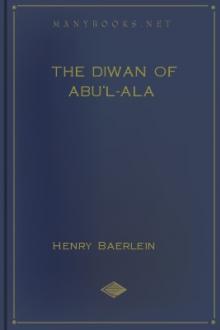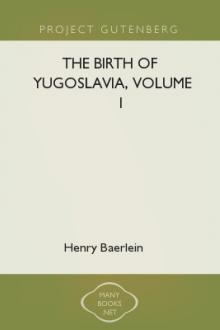The Diwan of Abu'l-Ala
The Diwan of Abu'l-Ala
The object of the Editors of this series is a very definite one. They desire above all things that, in their humble way, these books shall be the ambassadors of good-will and understanding between East and West--the old world of Thought and the new of Action. In this endeavour, and in their own sphere, they are but followers of the highest example in the land. They are confident that a deeper knowledge of the great ideals and lofty philosophy of Oriental thought may help to a revival of that true spirit of Charity which neither despises nor fears the nations of another creed and colour. Finally, in thanking press and public for the very cordial reception given to the "Wisdom of the East" Series, they wish to state that no pains have been spared to secure the best specialists for the treatment of the various subjects at hand.
Book Excerpt
ow merely after material possessions in the belief that we can retain them, we are pursuing an object which does not really exist." . . . And this idea of transitoriness prevails so
generally among the Arabs that the salad-seller recommends his transitory wares to pious folk by calling, "God is that which does not pass away!" So, too, the Arab pictures as a bird, a thing of transience, the human soul. In Syria the dove is often carved upon their ancient tombstones. And the Longobards among their graves erected poles in memory of kinsfolk who had died abroad or had been slain in battle; on the summit of the pole was a wooden image of a dove, whose head was pointed in the direction where the loved one lay buried. With us, as with Abu'l-Ala
(_quatrain_ 26), the soul may metaphorically be imagined as a bird, but for the European's ancestor it was a thing of sober earnest, as it is to-day to many peoples. Thus the soul of
Aristeas was seen to issue from his mouth in the shape of a raven.[6] In Southern
generally among the Arabs that the salad-seller recommends his transitory wares to pious folk by calling, "God is that which does not pass away!" So, too, the Arab pictures as a bird, a thing of transience, the human soul. In Syria the dove is often carved upon their ancient tombstones. And the Longobards among their graves erected poles in memory of kinsfolk who had died abroad or had been slain in battle; on the summit of the pole was a wooden image of a dove, whose head was pointed in the direction where the loved one lay buried. With us, as with Abu'l-Ala
(_quatrain_ 26), the soul may metaphorically be imagined as a bird, but for the European's ancestor it was a thing of sober earnest, as it is to-day to many peoples. Thus the soul of
Aristeas was seen to issue from his mouth in the shape of a raven.[6] In Southern
Editor's choice
(view all)Popular books in Poetry, History
Readers reviews
0.0
LoginSign up
Be the first to review this book

 Free Download
Free Download

























-itok=vcKIB5v1.jpg)